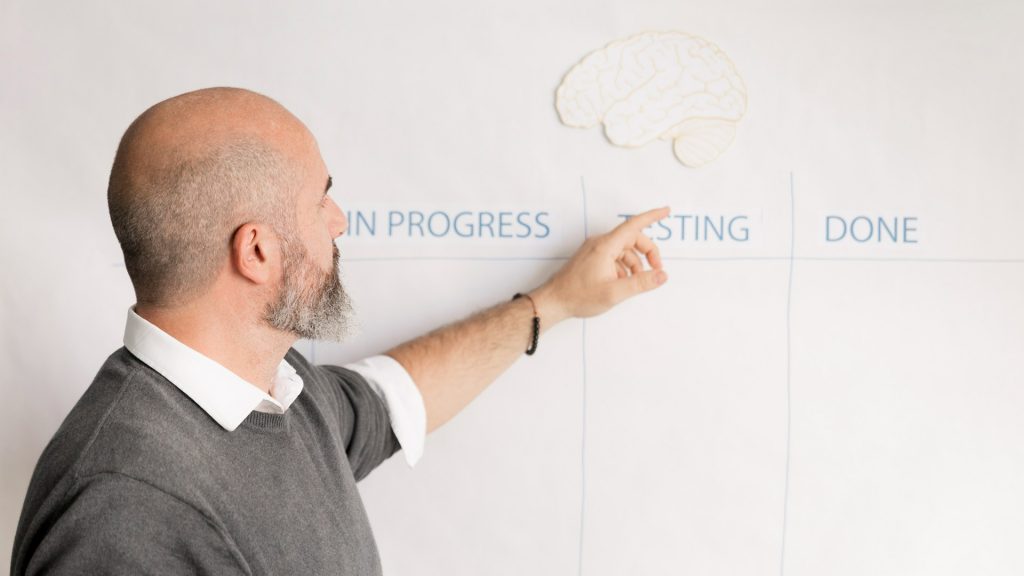Have you ever paused to consider the trajectory of your professional journey? The question, “What Are Your Long-Range Career Goals?” carries profound implications for your future. As you set out on your path, envisioning your goals with clarity can help you navigate through challenges and capitalize on opportunities. In this comprehensive guide, we will delve into the art of crafting and pursuing long-range career goals. From understanding the importance of goal-setting to practical strategies for achievement, this article is your compass towards a fulfilling and successful career.

The Essence of Long Range Career Goals
Your long range career goals are the guiding stars that illuminate your professional journey. These goals extend beyond immediate milestones, encompassing your aspirations for the coming years and even decades. They provide you with a sense of purpose, direction, and a roadmap for your career advancement. By defining these goals, you lay the foundation for a purposeful and fulfilling professional life.
How Do Long Range Career Goals Differ?
While short-term goals often focus on immediate tasks and accomplishments, long range career goals cast a wider net. They take into account the bigger picture, encapsulating your ultimate vision for your career. Long range goals may include milestones such as reaching a leadership position, spearheading innovative projects, or making a significant impact in your industry.
Importance of Defining Long Range Goals
Benefits of Having Clear Career Goals
Clarity in your long range career goals offers a multitude of advantages. It provides you with a clear target to work towards, enhancing your motivation and focus. Moreover, well-defined goals empower you to make informed decisions, ensuring that your choices align with your aspirations.
How Goals Provide Focus and Direction
Long range career goals serve as a compass, guiding you through the twists and turns of your professional journey. In moments of uncertainty, they offer a sense of direction and purpose, helping you make choices that propel you closer to your envisioned future.
Crafting Your Long Range Career Vision
Visualizing Your Future Self
Creating a mental image of your future self in a desired professional position is a powerful exercise. Imagine the skills you’ve mastered, the challenges you’ve overcome, and the impact you’ve made. This visualization not only fuels your motivation but also helps shape the path you need to take.
Aligning Your Goals with Your Values
Your long range career goals should harmonize with your personal values and passions. When your goals align with what truly matters to you, your journey becomes more meaningful and satisfying. This alignment ensures that your success is not just about achievements, but about fulfilment.

Setting SMART Goals
Understanding the SMART Criteria
SMART stands for Specific, Measurable, Achievable, Relevant, and Time-bound. Applying these criteria to your long range career goals makes them more tangible and attainable. Specificity, measurability, and a defined timeline provide structure to your aspirations.
Examples of SMART Career Goals
- Specific: Obtain a senior management role in the marketing department.
- Measurable: Increase annual sales by 20% within the next five years.
- Achievable: Complete a professional certification relevant to your field.
- Relevant: Enhance cross-functional collaboration skills to support team efficiency.
- Time-bound: Attain project management certification within 12 months.
Strategies to Achieve Long Range Career Goals
Continuous Learning and Skill Development
Investing in your personal and professional growth is crucial for achieving long range career goals. Stay updated with industry trends, acquire new skills, and enroll in relevant courses. Learning is an ongoing journey that equips you for evolving challenges.

Building a Strong Professional Network
Cultivating relationships within your industry can open doors to opportunities you might not have encountered otherwise. Attend conferences, workshops, and networking events to connect with like-minded professionals and potential mentors.
Overcoming Obstacles and Persevering
Challenges are inevitable, but your resilience is what sets you apart. Embrace setbacks as opportunities for growth and learning. Your ability to persevere and adapt in the face of adversity will propel you towards your long range goals.
Balancing Ambition and Patience
Embracing the Journey with Patience
While ambition fuels your drive, patience provides the perspective needed for a successful long-term career. Understand that achieving significant goals takes time, and each step forward contributes to your progress.
Recognizing Milestones Along the Way
Celebrate the milestones you achieve on your journey towards your long range goals. Recognizing and acknowledging these accomplishments fosters a sense of achievement and motivates you to keep moving forward.
Navigating Career Transitions
Seizing Opportunities in Change
Career transitions can be daunting, but they also offer new horizons. Embrace change as a chance to learn, grow, and expand your skill set. Each transition has the potential to lead you closer to your ultimate goals.
Adapting Your Goals to New Circumstances
As circumstances evolve, your long range career goals may need adjustments. Flexibility is key; reevaluate your goals periodically to ensure they remain relevant and achievable given the changing landscape.
Achieving Work-Life Balance
The Role of Balance in Long Term Success
A successful career is only truly fulfilling when complemented by a balanced personal life. Strive for harmony between your professional ambitions and your personal well-being.
Strategies for Harmonizing Work and Life
Set boundaries to prevent work from overwhelming other aspects of your life. Dedicate time to your passions, hobbies, and loved ones. This balance rejuvenates your energy and enhances your overall effectiveness.

Tracking Progress and Making Adjustments
The Value of Regular Goal Assessment
Regularly review your progress towards your long-range career goals. This practice helps you identify what’s working, what needs adjustment, and how you can optimize your efforts for maximum impact.
Flexibility in Adjusting Your Trajectory
Be open to refining your trajectory as you gather new insights and experiences. Adapting your approach based on lessons learned ensures that you remain on the most effective path.

Overcoming Challenges and Staying Motivated
Harnessing Challenges as Growth Opportunities
Challenges are stepping stones towards personal and professional growth. Embrace difficulties as opportunities to learn, develop resilience, and enhance your problem-solving skills.
Cultivating and Sustaining Motivation
Motivation can ebb and flow, but strategies like setting short-term goals, seeking inspiration from role models, and reminding yourself of your long range goals can help you stay on track.
Success Stories: Learning from the Experts
Interviews with Accomplished Professionals
Learn from the experiences of successful professionals who have achieved their long range career goals. Discover their strategies, challenges, and insights that can inspire and inform your own journey.
Key Takeaways from Their Journeys
- Persistence is key: Many successful individuals faced setbacks but persevered.
- Adaptability matters: Being open to change and adjusting goals can lead to unexpected successes.
- Continuous growth: Lifelong learning and skill development are essential for long-term success.
FAQs
Q: How do I start setting my long range goals? A: To begin setting your long range goals, take some time for introspection. Reflect on your passions, strengths, and values. Consider where you see yourself in the distant future. Break down your aspirations into smaller, achievable milestones. Write down your goals and ensure they align with your overall vision.
Q: Can my long range goals change over time? A: Absolutely. Long range goals are not set in stone. As you gain experiences and your circumstances evolve, it’s natural for your goals to shift. Stay open to reassessing and adjusting your goals to ensure they remain relevant and attainable.
Q: What if I face setbacks in achieving my goals? A: Setbacks are a natural part of any journey. Rather than letting them discourage you, view setbacks as opportunities for growth. Analyze the reasons behind the setback, learn from them, and adapt your approach. Resilience and perseverance in the face of challenges are crucial for reaching your long range goals.
Q: How do I stay committed to my goals? A: Stay committed by keeping your goals visible and regularly reminding yourself of their significance. Break your goals into smaller steps and celebrate your progress along the way. Surround yourself with supportive peers or mentors who can provide encouragement and accountability.
Q: Is it okay to adjust my goals along the way? A: Absolutely. Flexibility is key in goal achievement. Circumstances change, and sometimes your goals might need to evolve with them. Regularly review your goals and be willing to make adjustments based on new insights and experiences.
Q: What role does adaptability play in goal achievement? A: Adaptability is crucial for achieving long range career goals. The ability to embrace change and adjust your strategies as needed ensures that you can navigate unforeseen challenges and seize emerging opportunities effectively.
Q: What are your long term career goals? A: My long term career goals involve attaining a leadership position in my chosen field, contributing to innovative projects, and making a positive impact within the industry. I strive to continuously learn, develop my skills, and inspire others through my journey.
Q: What are your long term career goals and how do you hope to achieve these? A: My long term career goals include becoming a recognized expert in my field and contributing to advancements that positively impact society. To achieve these goals, I plan to pursue advanced education, collaborate with industry leaders, and consistently push the boundaries of my knowledge and skills.
Q: How do you set long term goals and achieve success? A: Setting long term goals involves envisioning your desired future and breaking it down into actionable steps. I ensure my goals are Specific, Measurable, Achievable, Relevant, and Time-bound (SMART). To achieve success, I remain adaptable, continuously learn, seek mentorship, and maintain a growth mindset throughout my journey.
Conclusion
Congratulations on embarking on the journey to define and pursue your long range career goals! Remember, your goals are not just about reaching a destination; they are about the growth, learning, and transformation that occur along the way. By aligning your aspirations with your values, staying adaptable, and nurturing your motivation, you are well on your way to achieving remarkable success. So, what are your long range career goals? It’s time to define them, pursue them, and watch your dreams unfold.
